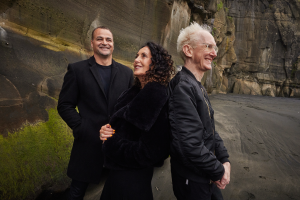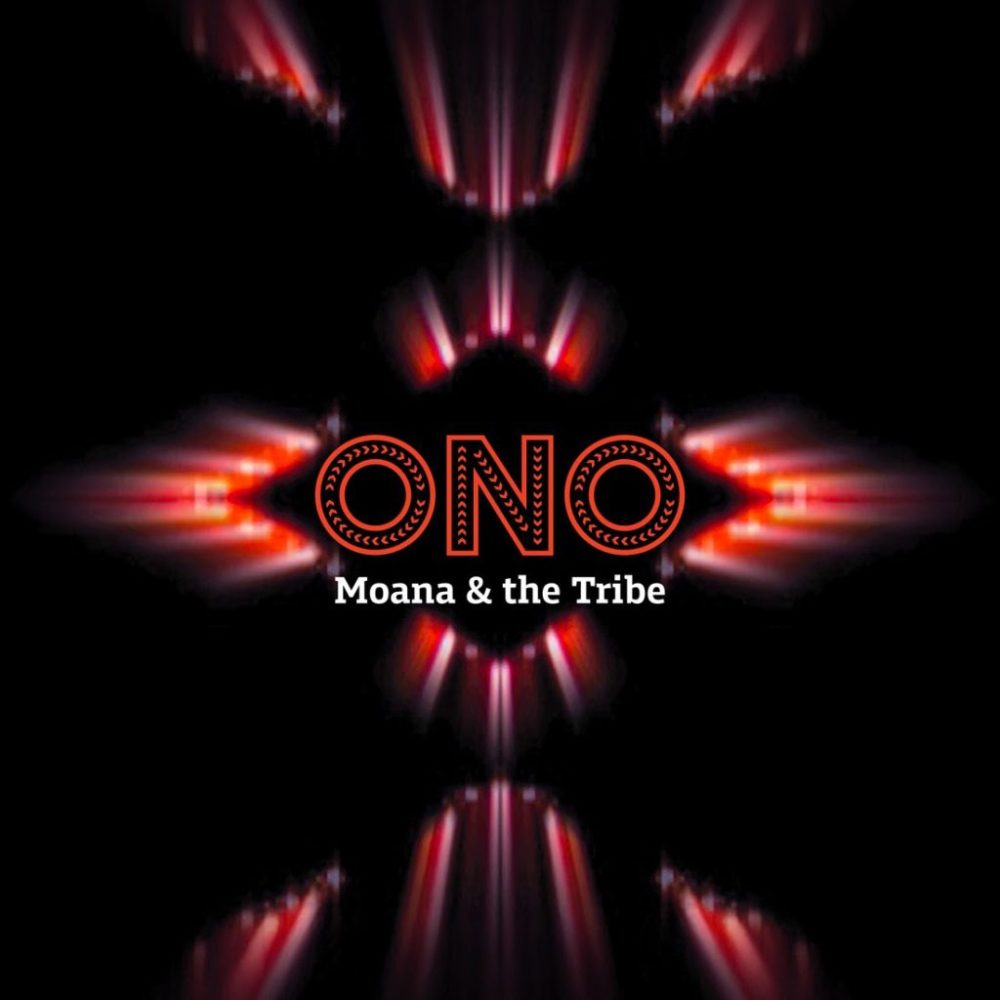Moana & The Tribe – Ono (Black Pearl) (13th Floor Album Review)
This is a diverse and utterly elevating collection from Moana & The Tribe. Moana Maniapoto is the kuini/queen of creating joyous sounds in a landscape of struggle for indigenous voice and inclusion. In this collection, ONO offers six richly-layered and sonically engaging collaborations that are a tacit encouragement to learn more about the traditions they speak to.
Moana occupies a unique place in the musical landscape of Aotearoa: an accomplished musician and performer as well as a tireless writer, political critic and broadcaster. Who else comes close? No one I can think of in this land. And internationally? Billy Bragg maybe with his regular political commentary in defense of the working class in outlets like The Guardian.
The six songs of ONO’s title take the listener on a journey pointing towards other traditions, sounds and struggles yet every song achieves a pleasing complementarity. In doing so a point is made: the local is always embedded in the global and the global informs the local. No less so than in contemporary music.
 Collaboration is central to the mahi behind these songs. Lyricist Te Manahau Scotty Morrison is well-known for his widely used resources for learners of te reo. The album is collaboratively produced as well as co-performed by Paddy Free (Pitch Black) and Moana Maniapoto, blending Moana’s vocals and Free’s trademark electronica-dub. And then there are the international collaborators on each song; carefully chosen from the places to which Maniapoto’s musical journeys advocating for indigenous voices have taken her.
Collaboration is central to the mahi behind these songs. Lyricist Te Manahau Scotty Morrison is well-known for his widely used resources for learners of te reo. The album is collaboratively produced as well as co-performed by Paddy Free (Pitch Black) and Moana Maniapoto, blending Moana’s vocals and Free’s trademark electronica-dub. And then there are the international collaborators on each song; carefully chosen from the places to which Maniapoto’s musical journeys advocating for indigenous voices have taken her.
Āio Ana opens the collection to a gentle percussive backing. Moana’s softly sung vocals are conversational, as if this waiata is leading the listener into the wairua of the collection. Another voice from far away joins in delicate harmony: Mari Boine a Sámi from Norway. My bare-pass achievement in beginner’s te reo keeps translation from me but the waitata sounds invitational.
Huakirangi picks up the tempo, featuring the deep and engagingly nasal voice of Shellie Morris from Gadigal country in Australia. There’s almost a call and response between Moana and Shellie within this track. Little sonic bursts of electronic wizardry from Paddy Free offer a contemporary feel.
Tōku Reo loosely translates as ‘my language’. It includes the voice of Inka Mbing (of the Atayal people in Taiwan). Including an indigenous collaborator from another land in a waiata about Māori language speaks to the critical place of all indigenous languages.
To me to most affecting track is Tū which features Jani Lauzon, a Métis singer from Canada. Maybe it’s my own years in that vast land but the haunting and wailing voice of this people of the Plains touches somewhere deep.
Ātahu is to charm or enchant and this track does just that with the added vocals of Kaumakaiwa Kanaka’ole from Hawai’i. A towering waiata that reaches into ancient spaces but feels utterly contemporary with Free’s wavering wall of synthesised sounds. Stunning.
Last up is Maiea with chanteuse Megan Henderson from Gaelic Scotland, blending a familiar sound of the western folk tradition with waiata from Aotearoa. The two are woven together closely as if strips of harakeke on a tukutuku panel.
This collection is both a thing of a beauty and a contribution to the quest to maintain the mana of te reo. This is timely when the language of this land is under threat by those blinded by self-interest and unwilling to embrace its history, land-connectedness and rights-based implications.
Play ONO again and again. Devour its sounds. And may we be grateful that Moana so effectively bridges the musical and political. Along the way she creates an archipelago of collaborations that stitches together a new korowai of hope-full songs. Kia kaha.
Robin Kearns
